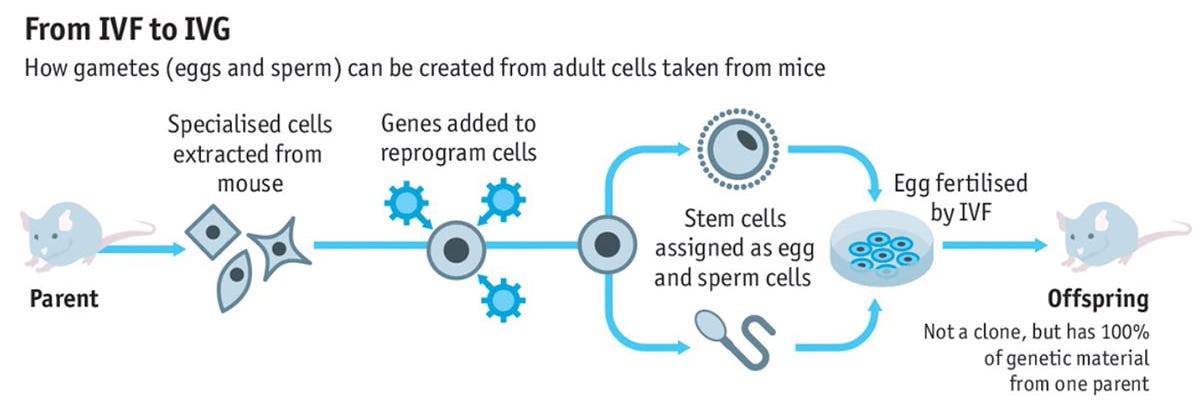The Ethical Debate: Reproductive Cloning vs In Vitro Gametogenesis (IVG)
Hard to justify IVG while banning reproductive cloning
The world of reproductive science is rapidly evolving, with technologies such as in vitro gametogenesis (IVG) and reproductive cloning offering new possibilities for parenthood. However, these advancements also raise significant ethical questions. A recent study [1] published in Bioethics explores these issues, focusing on whether it's possible to ethically accept one method while banning the other.
Both IVG and reproductive cloning offer potential solutions for couples struggling with infertility. IVG involves creating stem cell-derived (SCD) gametes in a lab, while reproductive cloning involves creating a genetic copy of an individual. While IVG is met with cautious optimism in scientific circles, reproductive cloning is often met with bans and moratoria due to safety concerns and ethical considerations.
The study argues that both technologies currently present similar safety risks. If safety is the primary concern against reproductive cloning, the same argument should apply to IVG. However, the authors note that safety concerns are based on current technology, and future advancements may reduce these risks.
Beyond safety, the paper explores non-safety-based arguments against reproductive cloning, such as breaches of human dignity, instrumentalization, uniqueness, and autonomy. However, the authors argue that these concerns are often ill-defined and can also apply to IVG. For instance, both technologies could be used to create offspring with a specific genome, leading to potential ethical dilemmas.
The study also addresses justice concerns, such as the distribution of scarce public resources. Both IVG and reproductive cloning are likely to be expensive technologies, and their use could divert healthcare funding from other areas. This argument, the authors argue, applies equally to both technologies.
The paper concludes that it would be challenging to ethically ban reproductive cloning while accepting IVG based on these arguments. This conclusion may have significant implications for bereaved parents considering reproductive cloning as a way to have cloned twin siblings of their lost children.
References
[1] Segers S, Pennings G, Dondorp W, de Wert G, Mertes H. In vitro gametogenesis and reproductive cloning: Can we allow one while banning the other? Bioethics. 2019 Jan;33(1):68-75. doi: 10.1111/bioe.12505. Epub 2018 Sep 5. PMID: 30182368.




